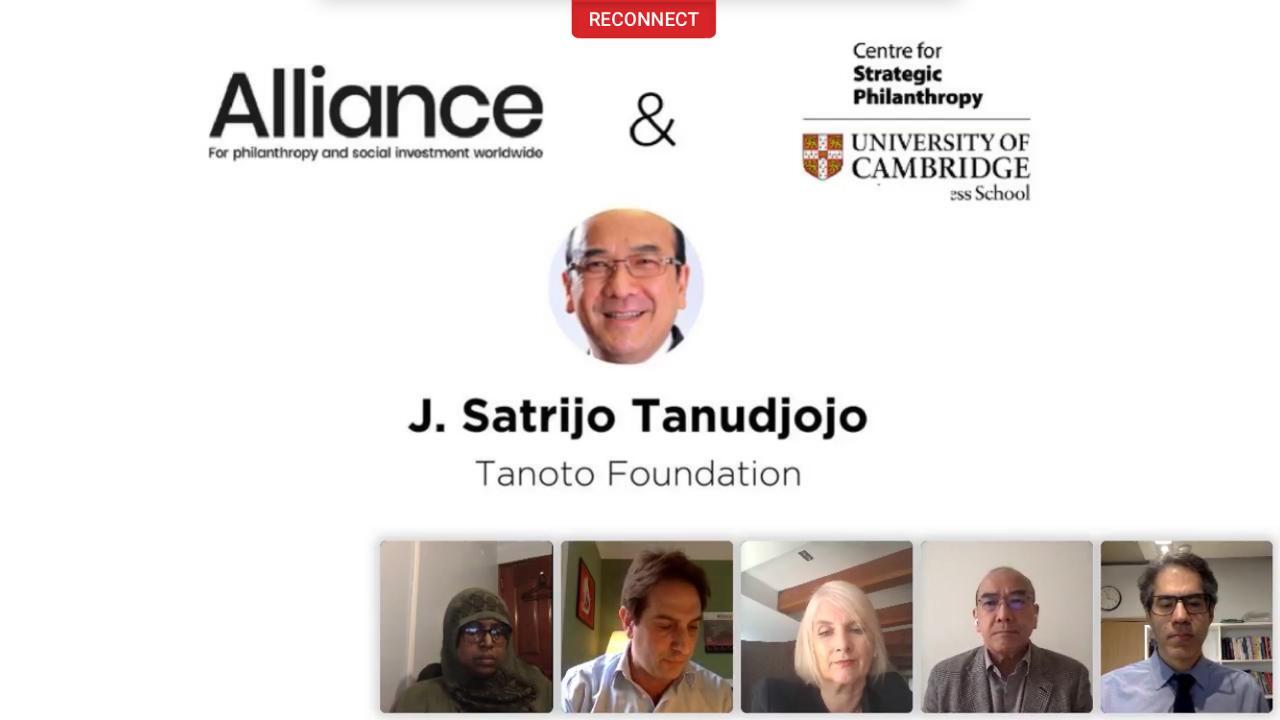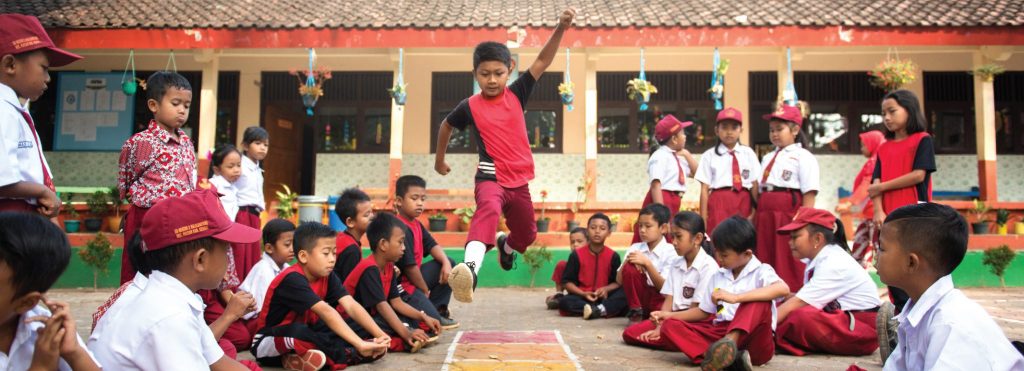Towards a New Balance of Power in Philanthropy

On January 26th 2021, Alliance Magazine collaborated with Centre of Strategic from Cambridge University to hold a webinar which invited various speakers around the world, such as Global CEO of Tanoto Foundation J. Satrijo Tanudjojo, Degan Ali of Adeso Kenya, Clare Woodcraft of Emirates Foundation, and Dr. Kamal Munir from Cambridge University who is also the author of the research in which the webinar is based on. This webinar discussed how the Covid-19 pandemic accelerates an already existing trend: the awakening of institutional philanthropy in the global south.
Although according to the recent research done by Dr. Kumal Munir, this awakening is seemingly hampered due to the weak infrastructure and networks, insufficient collaboration within and sectors and a lack of core funding to build the resilience of the non-profit ecosystem.
Kamal Munir defined power in philanthropy in his research as an ability to encourage and persuade others into doing or moving towards the way that we intend to show them to. This power dynamics can only shift if we leverage indigenous knowledge. He also stated that according to his research also, the lack of core funding to Non Governmental Organizations may lead to lack of resilience, and this pandemic has brought some new oblivious challenges while at the same time it also has opened new opportunities.
This webinar is opened and moderated by Charles Keidan of Alliance Magazine which then asked Clare Woodcraft to give her thoughts on the subject. She claims that there is a bias towards how people perceive north global’s influence on the balance of philanthropy globally. She believes that philanthropic actions should not be regionally limited, as global south’s regions such as the Middle East, Africa, and SouthEast Asia are within Emirates Foundation’s vision and mission reach as she also believes a lot of the countries within the said three regions are heavily affected by the Covid-19.
She then shares three recommendations for a more resilient philanthropy; investments in infrastructure through partnerships, to establish collaboration with government sectors, as well as to increase core funding to local organizations to help build resilience.
In this webinar, Degan Ali cautions the impact in seeing the global south philanthropy through the western lens philanthropy. With so many INGOs retreating due to the occuring pandemic, it has opened an opportunity for local philanthropy foundations to grow local social support that will lead to the break of dependency towards the western aid.

In discussing this subject, J. Satrijo Tanudjojo speaks about the potential of local philanthropy in Indonesia. While he claims that Indonesia’s economy has risen significantly, poverty in Indonesia undeniably still exists and remains an issue that should be overcome. WIth the happening pandemic, it has opened new opportunities and potentials for local philanthropy and private sector funding. He adds that this could bring a change towards the balance of power in Indonesia’s philanthropy and to not be as dependent on the western aid like it used to.
For the last four years, Indonesia’s philanthropy has grown rapidly. Tanoto Foundation’s investment in Indonesia’s education alone has multiplied from the previous USD3 million to more than USD10 million. J. Satrijo Tanudjojo believes that only with a quality education, a nation can open more opportunities in the future. While he believes that Indonesia’s philanthropy is yet to reach its maximum potential due to the unconducive environment, lack of support and funding, as well as being too dependent to certain Indonesian individuals, he claims to be optimistic as he feels that the Indonesian government of today has been really promising by making it easier for private institutions such as Tanoto Foundation, an independent family philanthropy organisation founded by Sukanto Tanoto and Tinah Bingei Tanoto in 1981, to establish cooperation with the state institutions.

Leave a Reply